Educators
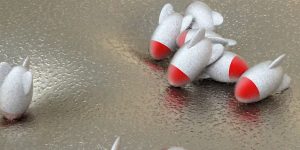
[Dis]content
Gloria Fan Duan; Blake Fall-Conroy; Anaïs Morales; Judd Morrissey, Mark Jeffrey, & Abraham Avnisan; Alan Perry; Chengan Xia; Kio Zhu
[Dis]content probes cultural objects and historical sites to examine the role of art and artifact in the construction of collective memory.
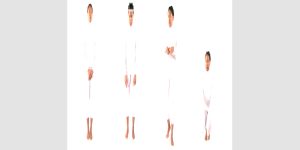
[Dis]connect
Lee Blalock; Ashara Renfroe; Anna Christine Sands; Julia Tsai; Anne Wilson & Shawn Decker
[Dis]connect interrogates the struggle for connection despite the ubiquity of instant communication, underscoring the role these technologies play in redefining our relationships to others and to ourselves.
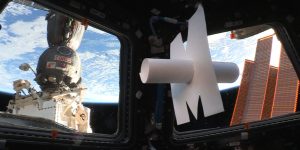
[Dis]orient
Eduardo Kac; Jakyung Lee; Bun Stout; Tongqi Wang; Ling Zeng
[Dis]orient explores real and imaginary spaces of isolation and introspection through experimental poetry and performance.
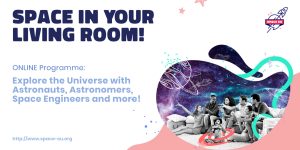
Space in your Living Room!
Space in Your Living Room! is an online program that brings astronauts, artists, space scientists and engineers, into living rooms across Europe and beyond. It is a series of fun activities, exciting challenges with amazing prizes, and live events for young people, families and educators. At Ars Electronica Festival we will share conversations between astronauts and artists, and the youth art projects created during the program: including stories, speculative design and young reporters stories.
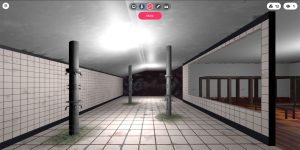
WADS (↑ ← → ↓) Exhibition in Mozilla Hub
RISE ITICA (CY)
WADS, a digital garden of commoning formed by 21 local artists, sets out to explore the potential of digital hubs as grounds of artistic and technological co-creation. The digital exhibition is created and experienced in the online environment of Mozilla Hubs and will be accessible through the Ars Electronica Digital Platform.

What We Eat
Laurie Frick (US)
As part of Heartbeat of the Earth, a series of online interactive artworks interpreting climate data, data artist Laurie Frick’s work examines the impact of individual foods on the environment using hand-drawn data visualisations, color coded and sized by CO2 output.
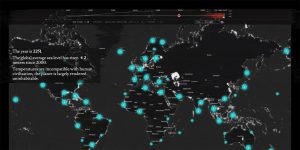
Coastline Paradox
Timo Aho (FI) & Pekka Niittyvirta (FI)
As part of Heartbeat of the Earth a series of online interactive artworks interpreting climate data, using Google Maps and Street View, artists Pekka Niittyvirta and Timo Aho visualize the predicted sea level rise – and the number of people likely to be displaced – in more than 200 different locations between the years 2000 and 2300.
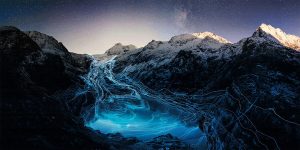
Timelines
Fabian Oefner (CH)
As part of Heartbeat of the Earth, a series of online interactive artworks interpreting climate data, artist Fabian Oefner explores the retreat of the Rhone and Trift glaciers in Switzerland over the last 140 years by using precise digital coordinates and special drone captures.
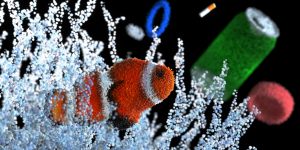
Diving into an Acidifying Ocean
Cristina Tarquini (IT/FR)
As part of Heartbeat of the Earth, a series of online interactive artworks interpreting climate data, digital artist Cristina Tarquini invites us to dive into our acidifying oceans using data from NOAA. Cristina Tarquini (IT) created an interactive data visualisation, inviting you to dive into the ocean and explore the impact of rising temperatures & in turn rising CO2 levels on marine life, over time.
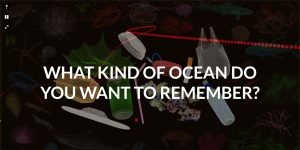
Diving into an Acidifying Ocean – Q&A
Cristina Tarquini (IT/FR), Frédéric Gazeau (FR) & Freya Murray (UK)
Join the Q&A with the artist who created the online experiment and the scientist who advised her.
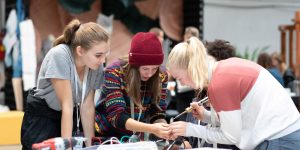
create your world 2020
Kepler's Garden am Campus der JKU
Das Festival create your world lädt junge Menschen und Junggebliebene ein, soziale und kreative Nähe zu schaffen – mit physischer Distanz. In einem Netzwerk des Austauschs werden Projekte, Ideen und Talente geteilt. Diese Plattform für Bildung, Experimente und verschiedene Zukunftsszenarien wird eine große Vielfalt junger Expert*innen präsentieren, die alle voneinander lernen können.
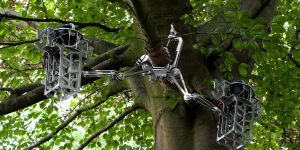
Garden Exhibition
Kepler's Garden am Campus der JKU
Die Garden Exhibtion am Campus der JKU in Linz widmet sich dem Zusammenspiel von Kunst, Forschung und Industrie/Design. Ausgewählte Kunstwerke greifen die Metapher des Gartens spielerisch und in unterschiedlicher Weise auf.
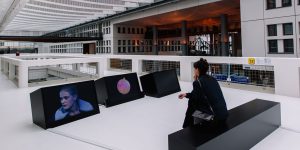
(UN)REAL
Science Gallery Network (INT)
The Science Gallery Garden at the Ars Electronica Festival will explore trust, technology, global challenges, arts innovation and new forms of digital storytelling. A showcase from the world’s only university network dedicated to public engagement with science and art, it will feature interactive workshops, experimental audio and visual experiences, livestreamed events and a specially-curated digital archive.
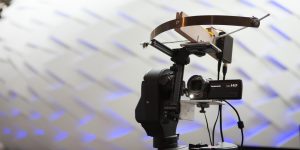
#festivalstories
Lennard Barth (AT), Celine Fahrngruber (AT), Samuel Gerersdorfer (AT), Joshua Haiden (AT), Elias Illig (AT), Sophie Kaufmann (AT), Irina Pitterle (AT) Xaver Quintus (AT)
Junge Filmemacher*innen, junge Talente, Young Professionals sind aufgefordert, Minidokumentarfilme zu drehen, die ihre Perspektiven und Eindrücke von den Themen des Festivals festhalten. Anstelle einer allgemeinen Festivaldokumentation werden acht Kurzgeschichten produziert, die verschiedene Slots und Protagonist*innen enthalten.
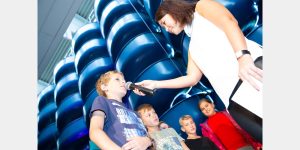
Talent Talks
Als ergänzender internationaler Teil der Kategorie u19-create your world des Prix Ars Electronica spricht Jurymitglied und Moderatorin Conny Lee (AT) mit einigen der diesjährigen GewinnerInnen über ihre Ideen, Kreativität und Zukunftsvisionen.
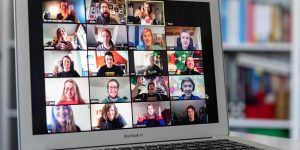
Jugend hackt remote: digital gardening
Jugend hackt Austria (AT), c3 (HU), mb21 (DE), ArtechLAB (NL), Ars Electronica (AT)
Wir präsentieren das Ergebnis von Jugend hackt remote: digital gardening, einem Hackathon für Jugendliche von 12 bis 18 Jahren. Er fand am 29. August statt und lud junge ProgrammiererInnen aus Österreich, Deutschland, Ungarn und den Niederlanden ein.

Young Animations
Jedes Jahr reichen junge begabte FilmemacherInnen ihre schrägen, subtilen, witzigen, utopischen, kritischen und dystopischen Arbeiten für die Kategorie "u19-create your world" des Prix Ars Electronica, für den Wettbewerb mb21(DE) und den c<19 (HU) ein. Sie zeigen uns ihre starke Vorstellungskraft, ihr tiefes Verständnis für bestimmte Themen, und das alles ausgedrückt mit ihren Fähigkeiten innerhalb eines Mediums.

Award Ceremony der Kategorie „u19–create your world"
Die u19-Zeremonie ist der eigentliche Höhepunkt des Festivals create your world. Hier werden die Preise an alle 24 Siegerprojekte vergeben. In diesem Jahr dient die Veranstaltung auch als Auftakt für die anschließenden Networking-Möglichkeiten im Rahmen des Festivals create your world.
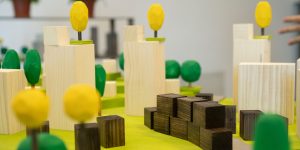
Baukasten der Zukunft
Louise Amcha (AT), Hannah Ertl (AT), Leonid Stanislav Lang (AT) und Marlene Urban (AT)
Der Baukasten der Zukunft ist ein interaktives Gedankenexperiment einer jungen Künstler*innen-Gruppe. Das Projekt besteht aus einem großen, einladenden Holzmodell einer Landschaft, in welcher die Besucher*innen ihre eigene Stadt planen können. Ergänzend dazu baut ein Computerprogramm per Knopfdruck unter denselben Bedingungen auch eine Version einer Stadt. Anschließend gilt zu bewerten, welche Vor- und Nachteile jede Version mit sich bringt und welche Lösung die beste für unsere Zukunft wäre.
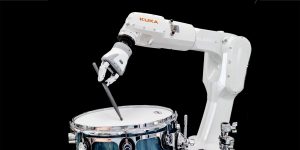
robodrum
Das Projekt robodrum ist ein Roboter-Setup, das aus vier mit Trommeln ausgestatteten KUKA-Roboterarmen besteht. Es geht nicht darum, eine menschliche Leistung exakt nachzubilden oder besser oder schneller als ein Mensch zu sein. Stattdessen handelt es sich um ein algorithmisches System, das es den Besucher*innen ermöglicht, akustische Spuren zu hinterlassen.


